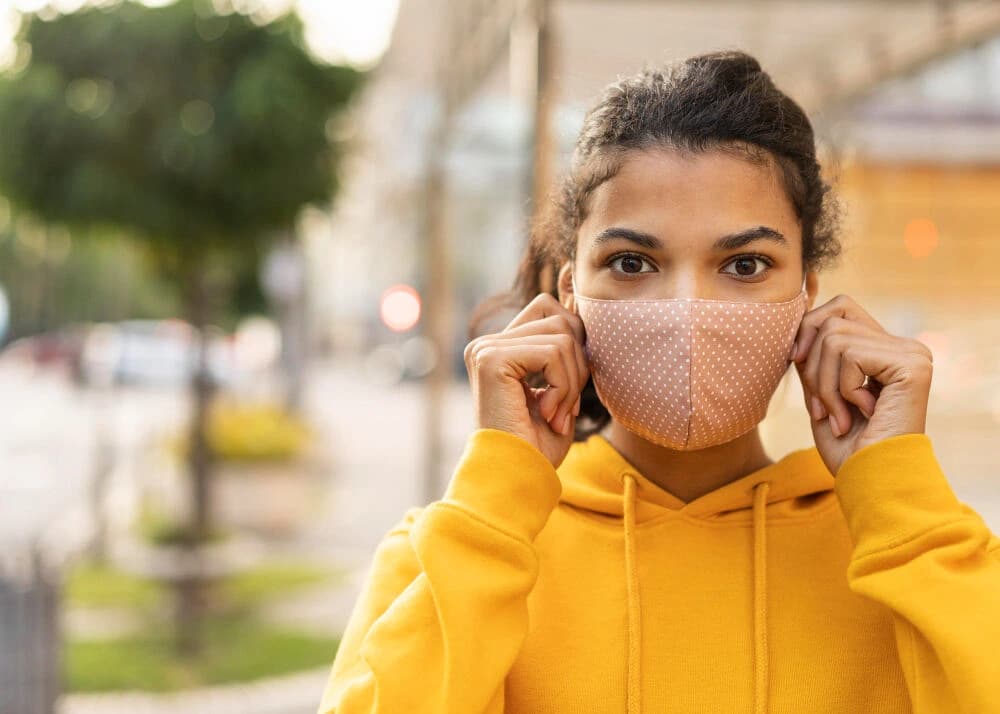Alarming Impact of Air Pollution on Children’s Health

Medically Reviewed By
Dr Divya Rohra
Written By Kirti Saxena
on Feb 3, 2024
Last Edit Made By Kirti Saxena
on Mar 17, 2024

As per WHO, more than 90% of Children in the world breathe toxic air daily. Air pollution is one of the major causes of health risks for children. As per the State of Global Air 2020 report, more than 116,000 infants died in India in 2019 from air pollution. Children are more vulnerable than adults as their organs are developing. Air pollution causes low birth weight, asthma, respiratory infections, and allergies in children. Furthermore, children who have been exposed to high levels of air pollution are at high risk of chronic diseases such as cardiovascular disease later in life.
Why are children at higher risk?
93% of children under the age of 15 in the world breathe polluted air and put their health at risk. As per the studies, pregnant women who are exposed to polluted air are more likely to give premature, small, or low birth weight babies. The pollution also impacts the neurodevelopment and cognitive ability of children and may also trigger asthma and childhood cancer.
- Children are at high risk because their organ systems are still in the development stage, and pollution impacts the growth and development of their organs.
- The breathing rates of children are higher than adults, and they inhale air per kg of their body weight. Because of their low physical height, they breathe closer to the ground, where they catch the pollutants easily. The particulate matter enters deep into the lower respiratory tract and causes breathing issues.
- Due to the impact of pollution on children, children have weaker immune systems than adults. Children are more susceptible to respiratory infections due to air pollution.
- Children are involved in active outdoor activities like school and sports activities, and the risk of pollution exposure increases.
- Their bodies are less able to metabolize, detoxify, and excrete toxins in polluted air.
- Their brains are still developing, and air pollution can affect their cognitive development.
Impact of pollution on children’s health and development
Air pollution is one of the major causes of death among children, accounting for almost 1 in 10 deaths under five years of age. Pollution affects neurodevelopment, harming the mental and motor development of kids. The pollutants in the air can damage children’s lungs. This may also increase the risk of certain diseases like lung cancer, heart disease, acute and respiratory infections. Air pollution can also increase the risk of pneumonia and asthma attacks in children.
Respiratory Issues
Pollution is directly linked with diseases that cause death. It is a severe environmental hazard for everyone, especially for children. The pollution particles of size PM 2.5 can pass through the lungs and enter the blood. This may increase the risk of heart disease and lung cancer problems in pregnant women and their babies. Children who breathe polluted air are at higher risk of developing asthma and other respiratory diseases. Airborne pollutants can irritate their airways and make it difficult to breathe. It can lead to asthma, childhood cancers, chronic diseases, poor lung function, pneumonia, and other types of acute lower respiratory infections.
Pollution’s impact on neurological development
Prolonged exposure to pollutants negatively impacts the neurodevelopment of children.
According to WHO, research shows that prenatal exposure to high pollution may cause developmental delays and psychological and behavioral problems in kids. In pregnant women, the pollutants increase the systemic oxidative stress and inflammatory markers, due to which there are chances of having placental impairments, brain developmental issues, and mental disorders. Fine particulate matter in polluted air, such as lead, mercury, polychlorinated biphenyls, organophosphate insecticides, and brominated flame-retardants, PM 2.5 reduces cognitive function, impacts intelligence quotients, and shortens attention span.
Premature births, Infant Deaths, and a Negative impact on Child Growth
Pregnant women who are exposed to pollutants are likely to give birth to premature babies with low weight. Research shows that pregnant women are at high risk during the first trimester of pregnancy on child growth indicators. Air pollution accounted for approximately 5,00,000 infant deaths worldwide in 2019.
Tips to protect your kids from pollution impact
Pollution is a global problem, and everyone must work towards managing or controlling it. Fortunately, there are solutions that you can use to protect your children. You can reduce pollution by switching to renewable forms of energy, avoiding burning fossils, and using less energy. Here are some tips to protect your kids from pollution-
- Do not burn the waste material near your house locations
- Ensure to provide a healthy and nutritious diet to boost their immunity and make their defense mechanism stronger
- Close the windows and use air purifiers to lower the pollution impact
- If you notice any symptoms, like shortness of breath, faster breathing, burning or inflammation in the eyes, fainting, toughness, or wheezing, don’t avoid it and consult your doctor.
- Do not use kerosene lamps or stoves for cooking or lighting.
- Monitor the pollution level regularly and take preventive precautions.
In Conclusion
Air pollution is on the rise, immensely affecting everyone’s lives. The polluted air we breathe from cars, factories, and combustion puts children’s health at risk. Be aware of the health risks and take preventive measures to ensure the health of your child. Be cautious of the symptoms your child might be facing, like asthma, respiratory infections, or developments that might be due to exposure to pollution. It’s time to act for the sake of the healthy future of kids and the generations to come.


